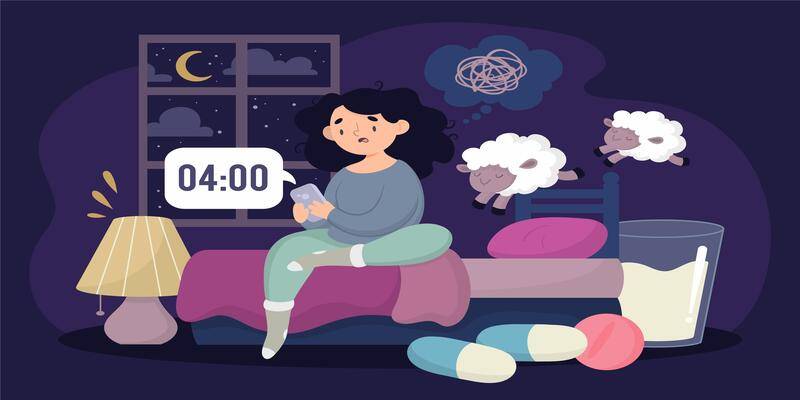How to stop being a people pleaser

If you live for people’s acceptance, you will die from their rejection,” shared American rapper-singer Lecrae. There is a life-altering lesson in these words. For 25 years, I have lived pleasing others — trying to do everything people perceived right, only to gain acceptance and appreciation. Now that I am an adult who has spent considerable time and energy understanding my self-worth, I know how people-pleasing is futile and also, how to stop being a people pleaser.
People-pleasing is a behaviour backed by an excessive desire to gain approval and acceptance from others. Individuals who engage in people-pleasing often prioritise others’ needs and opinions over their own, fearing rejection or disapproval. This tendency can lead to a lack of assertiveness, boundary-setting difficulties, and a diminished sense of self-worth.
It is not easy to back out — it took every ounce of my energy to come out of that zone and understand my worth. However, that is where my transformation truly began. During my journey of being a manifestation coach, I realised it’s not something that happened with just me; it is happening with most people. Many of us can not break the vicious cycle of people-pleasing and that is what makes it crucial to learn how to stop being a people pleaser. In this article, I will shed some light on some reasons, from my experience, as to why one chooses to please others and how one can stop doing so and still be nice.
Low self-esteem
People with low self-esteem seek validation from those around them. Their limiting beliefs don’t let them trust themselves. For them, pleasing others becomes a way to gain approval and feel more valued.
Fear of conflict
Those who are afraid of conflicts and want to avoid them at all costs are often the ones who end up pleasing others. The need to have constant peace of mind pushes them to avoid disagreements. Hence, they keep their needs and opinions aside and agree with others, so that there is no confrontation.
Fear of rejection
Rejection is god’s redirection towards something better, but people do not believe that. They believe in instant gratification, which leads to people taking steps that ensure they are always accepted and included, even if it includes putting on a facade or entirely disregarding their own needs and thoughts.
Need for positive reinforcement
Those who lack confidence and are insecure seek external validation. They may go to great lengths to please others in the hope of receiving positive feedback. The approval they receive can serve as a source of validation and reassurance.
There are many other reasons and signs, but the aforementioned are common across most people-pleasers. Another thing that I have observed is the prevalence of denial. Very few people will accept that they live to please others. They will never agree that they are living to make others happy without paying any regard to their needs and happiness.
So, this is not about me, but about you. Be honest with yourself and do some introspection on your behaviour. Here I have listed a few things you need to know if you want to learn how to stop being a people pleaser. Not being one does not mean being rude to them. It simply means putting yourself and your values first while being cordial to others. Remember, people pleasing hides the real you.
Face your fears
The more you avoid your fears, like the fear of rejection, failure, and disapproval, the worse it will be for you. American author and coach, Tony Robbins shared, “Kill the Monster while it’s little.” These fears are monsters which kill our dreams or desires to be better. Face them while they are small and eliminate them.
Set healthy boundaries
Setting clear boundaries is crucial if you no longer want to be a chronic people pleaser. This is not easy, but being assertive when necessary lets others know that your needs matter and you value yourself. Healthy boundaries set limits for what is acceptable and what is not. This helps to build respectful relationships and protects you from unhealthy ones.
Stop over-apologising
Being apologetic when you are genuinely at fault is good. However, saying sorry only to make others feel comfortable is a toxic habit, and you need to stop doing this. Over-apologising can undermine you and can lower your respect. Start taking a stand for things that matter to you and stop being apologetic for who you are.
Make better choices
Take your time to respond. Remember, you always have a choice. Learn to buy yourself time when someone makes a request. Avoid saying ‘yes’ instantly. Give yourself time to give the request a proper thought. You can always say: “Let me think about it” or “I will reply later”. Remember, you have a choice to say yes or no. You have to respect your time, mental space, and needs.
Develop self-love
Being kind and loving yourself is a powerful tool in boosting confidence and helps break the habit of people-pleasing. When you start loving and respecting yourself, you will always value your needs over those of others. It is essential to practice self-love and affirmations are a great tool for that.
You can’t please everyone
You can be the sweetest peach in the world, and someone somewhere will still hate peaches. Accept that you will never be able to please everyone. Also, sit and ask yourself these questions: “Do you want to please everyone?” Why? Some people are not worth your time. It is better to move on from toxic people rather than try to keep their anger at bay. If someone only likes you when you are doing something for them, they are not the people you want in your life. Not everyone will love you and it is absolutely fine.
Celebrate your wins
Celebrate moments when you successfully prioritise your needs. Your mind likes to win and it loves rewards too. When you start collecting evidence that shows you can put yourself first, you will move towards better and positive changes. By celebrating, I do not mean to say go party big. You can journal your wins, tell your close friends/ family you did something for yourself, or just get yourself a treat.
A few signs of being a people pleasing:
- You always say ‘yes’ to others
- You apologise a lot, even when you are not wrong
- You always have someone to double-check your work
- You are always concerned and overburdened with other’s opinions
- You agree even when you disagree
- You often disregard your own needs and opinions
- You take up extra work or overcommit to responsibilities or plans
If you’re a people pleaser you might feel:
- A never-ending pressure to be friendly and nice
- Anxiousness about having friction with anyone
- Uneasy about standing up for yourself
- Frustrated and stressed due to all the extra commitments and plans
- Mentally drained because of putting on a facade
- That people take advantage of you and that you don’t matter
All these things will become automatic after some time, but you need to start doing them intentionally to reach the point where they become second nature. Do not immerse yourself in guilt or regret, as these are highly unsupported emotions for putting yourself first. So, now that you know how to stop being a people-pleaser, take charge of your life, live to the fullest, and do what makes you happy!






